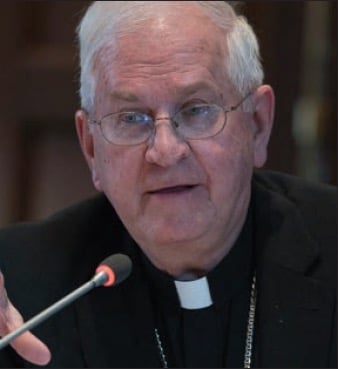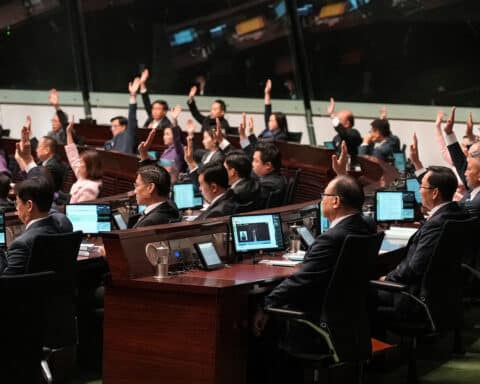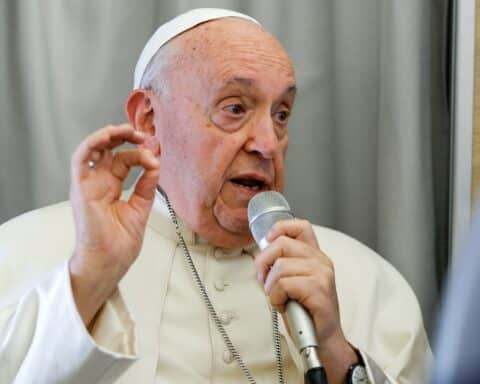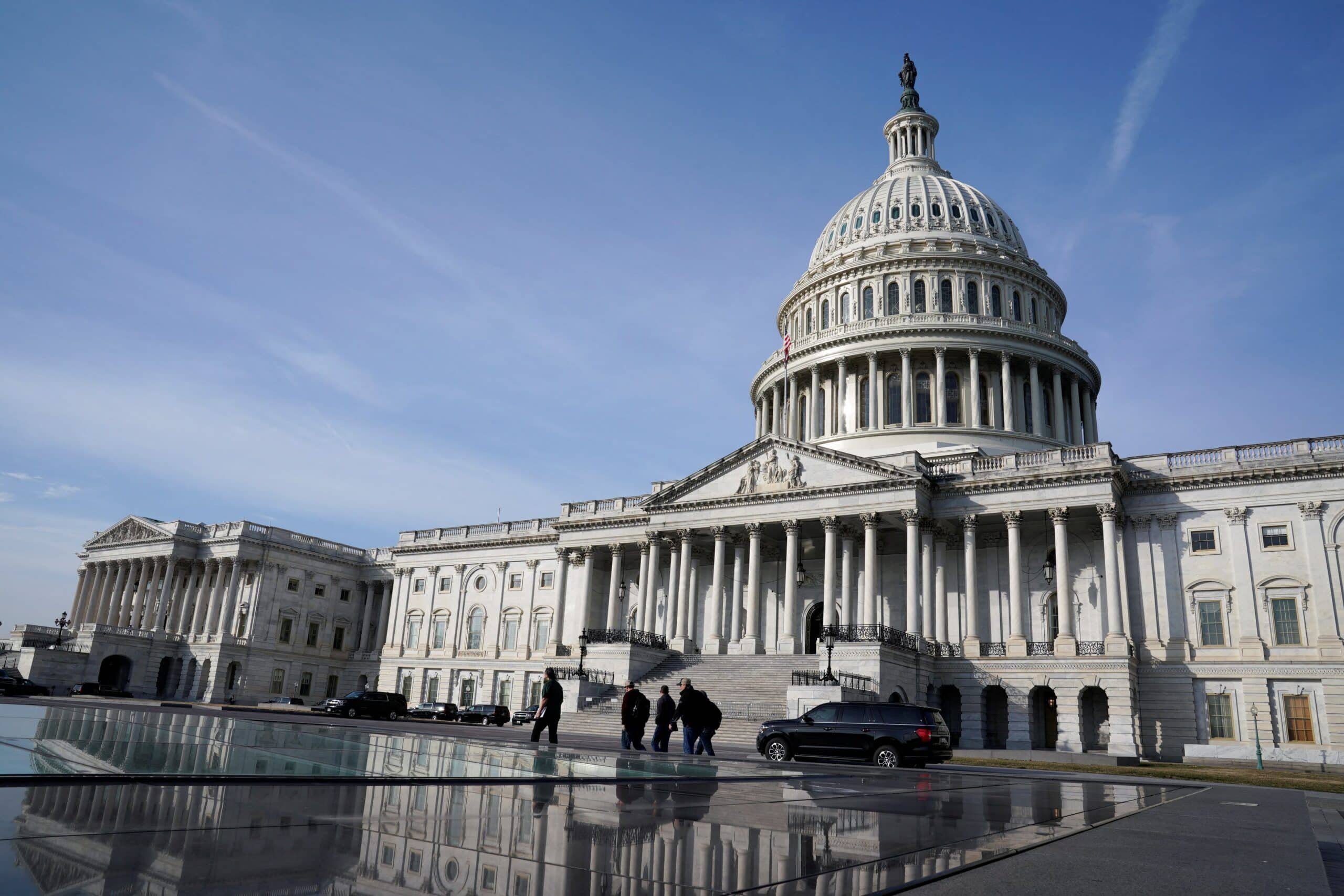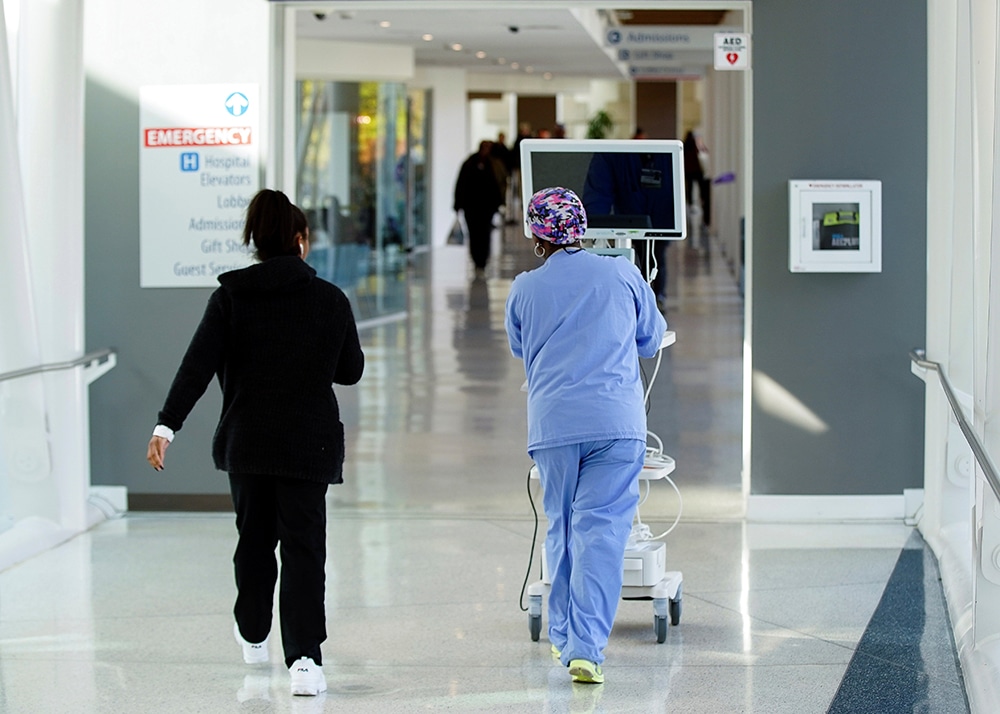In November, the U.S. Conference of Catholic Bishops signaled strong support for continuing its commitment to religious liberty by transitioning its expired ad hoc committee on the subject into a standing committee. With new leadership — Archbishop Joseph E. Kurtz of Louisville has replaced Archbishop William E. Lori of Baltimore — the committee has a new vision, beginning with its re-thinking of the annual “Fortnight for Freedom.” Our Sunday Visitor recently spoke to Archbishop Kurtz about the future of the Church’s right for religious freedom.
Our Sunday Visitor: Tell me a little bit about Religious Freedom Week. How does it differ from the Fortnight for Freedom of the last several years?
Archbishop Joseph E. Kurtz: The Fourth of July continues to be the most ideal time within our culture to talk about independence and to talk about the gifts of our nation, and certainly within that context, the first freedom, which is religious freedom. There’s nothing changing about that. (But) I often say that a lot of times people don’t really understand what a fortnight is. If you’re not familiar with William Shakespeare, you don’t often use the word “fortnight” in our nomenclature and common parlance. What we have found is this: that there have been a number of “weeks” that have been used very successfully. They fit well with parish planning and with diocesan newspapers and so we basically are having a “week” that will end with that Sunday prior to the Fourth of July. This week is ideal because first of all, as you know, it includes the feast day of Sts. Thomas More and John Fisher, it includes the Nativity of St. John the Baptist, and it will end with the feasts of Sts. Peter and Paul, all very rich liturgically.
OSV: What are the goals of the week?
Archbishop Kurtz: The goal is really to highlight in each day a particular issue. We envision the committee for religious freedom to play, what I call second fiddle or you might call, a supportive role, so when an issue is related to migration services or education or health care or pro-life activities, we know that the particular committee charged with that particular area will take the lead, and we see ourselves supporting it. So the Week of Religious Freedom will somewhat mirror that. Each of the seven days will have a particular focal point. There will be seven topics, each topic will have a particular call to pray, to reflect and to act — so it’s very grounded. What we’re also hoping for is that each day will have an accompanying video … from a particular lead issue to be able to set the context for that particular day. We want people who are passionate about a particular issue to begin with that, deepen it, but then also expand it. We need our religious freedom to make space, if you will, so that we might be able to both witness and serve within our areas.
OSV: Would you say that the focus on the specific issues helps make religious liberty less abstract?
Archbishop Kurtz: Everybody, no matter what our age is, we like to put a face on something. But the research is showing us, that people who are 60 years of age and older, they kind of get it. They understand that there are real threats to making known within our society what people of faith continue to witness to their faith in public and to continue to serve. But often the research is saying that people who are the Millennials, who are younger, they don’t quite get it. They say, “Well really is there an issue? Is there really a threat?” And so I think putting a very vivid face on whatever the issue is, I think, can go a long way. (We’d like to) make it very vivid and very visual so that people will actually picture someone and picture what their plight is if we do not, first of all, appreciate the religious freedom that is ours … but also if we don’t stand up for people and make sure that we do have room in our public life for people to witness to their faith and to serve people with integrity of faith.
OSV: What can parishes do to participate?
Archbishop Kurtz: One simple thing is to highlight it. There is a theme — “Serving Others in God’s Love” — and so before you even see the words religious liberty, you see what its purpose is. One thing parishes can do is in their bulletins perhaps reproduce before the week begins what will be a summary page that encapsules all seven days on one page. That’s already on the website. The ideal thing is to encourage people to use that week of religious freedom to bring special prayer intentions each day and to allow the materials we give in the resources to in a sense be a guide, a help to them in their prayer. And then if they use that page, the prayer will lead to reflection, and (we suggest) a particular action. And actions are only limited by our creativity so there may be people out there who come up with very fine actions to support religious freedom that we haven’t even thought about.
OSV: Why does religious liberty remain such an important issue?
Archbishop Kurtz: Remember that our nation in the United States has been founded on principles of religious freedom, that many of the people who came seeking freedom came to the United States precisely because they were leaving places of oppression. It’s the reason we also are so sensitive to parts of the world that are more dramatically having the curtailing of religious freedom. It’s very important because when we look at the United States, and we look at our nation being based on treating people with respect and dignity and justice, the voices of faith that have been, from the beginning and continue to be, significant in being ones who promote that sense of justice and that sense of reaching out in community to my neighbor. Obviously we’re interested in making sure that the contributions that our Catholic Church has made can continue to touch those who are most in need, whether it be Catholic Charities or health care or education. But we also recognize that our nation needs to respect the religious freedom of every human being that’s in the United States.
OSV: Which of the issues highlighted during Religious Freedom Week are the most urgent?
Archbishop Kurtz: In many ways, I think that each one has its own merits, but I will say that there are a number of issues on the front burner. Obviously the issue that our bishops have talked about in terms of the dignity of people who are immigrants and refugees is very important, and it’s very much in the news. The second issue that we are working very strongly for is the Child Welfare Provider Inclusion Act — basically an act that’s moving forward that’s protecting the religious freedom of child welfare providers. We’ve had so many problems that are growing, especially because of the opioid crisis, with children who desperately need a home.
This is not a time within our nation to begin to limit which organizations, because of their religious commitments, can or cannot provide service. We’re basically saying … is that adoption and foster care should be able to be provided because of the grave need families have in a way that is consistent with what those families who turn to us wish. Our beliefs of marriage and family indicate and help to shape the way in which we provide them service. Obviously other child welfare providers may approach things differently. We believe that there’s room in our nation for more than one way to provide service. The great fear now is that Catholic Charities and other such groups are essentially forced to withdraw from providing child care or being asked to compromise their principles.

